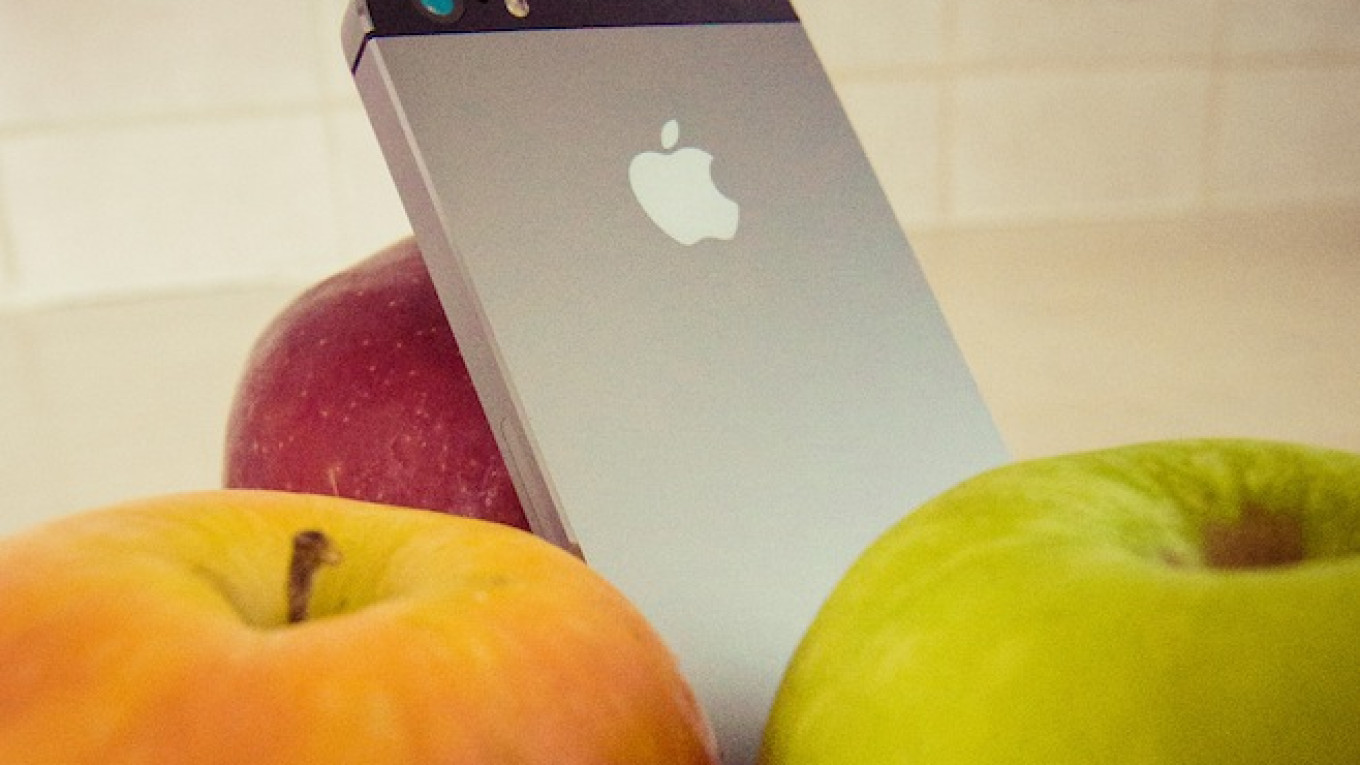Apple responded to the declining ruble Wednesday by hiking prices for its flagship smartphone, the iPhone 6, on its recently opened Russian online store.
As Western sanctions, an economic slowdown and declining oil prices take their toll on the ruble — which has fallen by almost 30 percent against the U.S. dollar since January — companies selling foreign goods have been forced to pass on higher import costs to Russian consumers.
Apple launched its official online store in Russia on Monday, but the site was closed the following day pending an adjustment of prices for iPhones, iPads and computers. As of Wednesday morning, Apple had reopened the store with average price increases of 25 percent for its latest smartphones; the iPhone 6 and iPhone 6 Plus.
The entry-level iPhone 6 with 16 gigabytes of built-in storage jumped from 31,990 rubles ($693) to 39,990 rubles ($864), according to Apple's website. The larger iPhone 6 Plus with 16 gigabytes of storage space previously cost 41,990 rubles ($907), but now the price is 52,990 rubles ($1149).
Apple has also upped the price for its older iPhone 5 models by about 5,000 rubles ($108), putting the cost of a basic iPhone 5 with 16 gigabytes of storage at 29,990 rubles ($649).
The new prices bring the dollar value of the phones back in line with their value in September when the new iPhone 6 line launched.
However, the phones are still about $200 more expensive in Russian stores than in the United States.
The price adjustments come just two days after Apple significantly expanded its presence in the Russian market by opening an official online store for Russian customers, and launching a 50-70 million ruble ($1-1.5 million) advertisement campaign, the Vedomosti business newspaper reported Tuesday.
Previously, Apple products were sold and advertised via third-party retailers.
The change in company policy reflects a new understanding that Russia is an important market for Apple products, analysts quoted by Vedomosti said. Apple has been taking an increasingly large share of the smartphone market in Russia over the past two years.
Other smartphone manufacturers operating in Russia, such as Lenovo, have already raised prices to account for the weaker ruble.
Russia's currency has lost 15 percent of its value since the beginning of October amid an intensification of oil price falls and new Western sanctions on Russia for the Kremlin's role in supporting separatists in Ukraine fighting the Kiev government.
Retailers initially sought to hold prices steady in the face of the ruble's volatility, but many are now raising prices on the shop floor to avoid losses.
Contact the author at bizreporter@imedia.ru
A Message from The Moscow Times:
Dear readers,
We are facing unprecedented challenges. Russia's Prosecutor General's Office has designated The Moscow Times as an "undesirable" organization, criminalizing our work and putting our staff at risk of prosecution. This follows our earlier unjust labeling as a "foreign agent."
These actions are direct attempts to silence independent journalism in Russia. The authorities claim our work "discredits the decisions of the Russian leadership." We see things differently: we strive to provide accurate, unbiased reporting on Russia.
We, the journalists of The Moscow Times, refuse to be silenced. But to continue our work, we need your help.
Your support, no matter how small, makes a world of difference. If you can, please support us monthly starting from just $2. It's quick to set up, and every contribution makes a significant impact.
By supporting The Moscow Times, you're defending open, independent journalism in the face of repression. Thank you for standing with us.
Remind me later.


